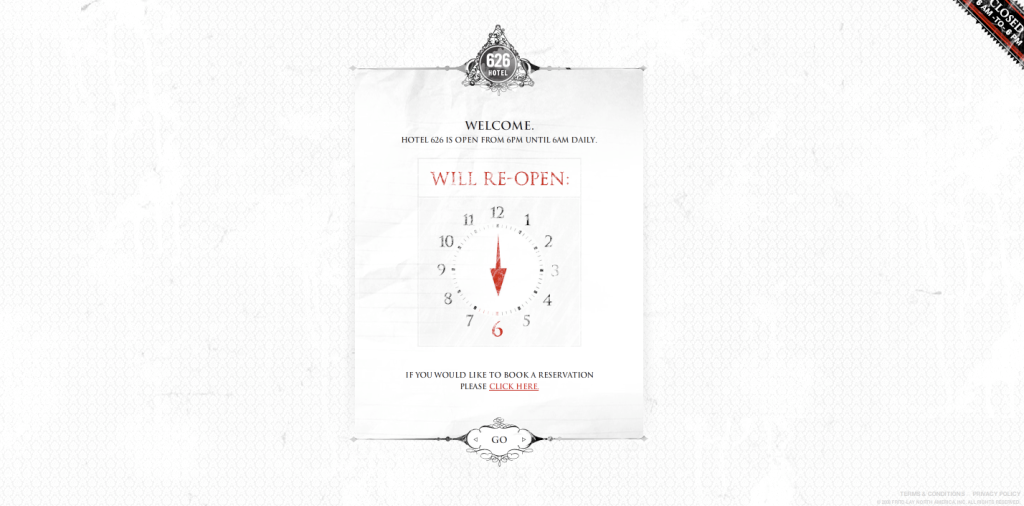
As a member of a group with many entrenched stereotypes associated with it, I must always be on my guard, trying to ensure my actions aren’t confirming these potentially-pejorative beliefs, thus propagating them and reflecting negatively on the community to which I belong.
You see, I am Jewish. I’m not a religious person, but I am Jewish in the cultural sense (a refrain you’ll commonly hear among many modern Jews). The company I keep, however, aside from my family, is not Jewish. What’s more, I’ve been in many situations over the years in which I was actually the first Jewish person someone had ever met. Do I want to be their archetype for a Jewish person? Not at all. I am an individual like anyone else, and the decisions I make should not color someone’s perceptions of an entire population. Nonetheless, they do.
If I decline to buy a shirt because it’s not on sale? Jewish. Use coupons when eating out or going to the grocery store? Very Jewish. Pick up a coin on the ground? Jewish! Always order water at a restaurant instead of a drink? Totally Jewish. Now whenever I am in a situation that involves money, my brain does some automatic calculations to determine the consequences of my choices on others’ opinions of Jews.
Perhaps a quick summary of my financial situation will serve to illustrate another reason, beyond my religio-cultural upbringing, that influences my buying habits: Working for $12/hr, attending a school that costs me about $3000 per quarter, and sitting on a 40% loss in the value of my savings due to the stock market (I know, I know. Only a 23-year old Jew would have money in the stock market.) In short, I am not rich. It makes perfect financial sense to save money where I can. In a gentile’s shoes I am being frugal, which is an admirable quality in Christian theology. But as a Jew I am looked down upon, and chided for my thriftiness.
Perhaps due to our current economic crisis, parsimony will gradually attain the respect it had for much of the 20th century, until a culture of conspicuous consumption and buying on credit took over. For frugality should be considered a characteristic of all intelligent people, whether their last name is Stein or Stone. .
Keep reading...
Monday, October 27, 2008
Parsimony: Smart, not Semitic
Water Fountain Rule No. 1

If you are filling a water bottle, always use the shorter fountain.
Keep reading...
Thursday, October 23, 2008
Smart Excedrin YouTube Promotion
Excedrin Speed Gels has a YouTube page on which they feature various "fast" skills. A nice way to connect the product benefit to some user-generated content.
Keep reading...
Sunday, October 19, 2008
Finally, Another Cool Advertising Post
Honda turned a stretch of road in California into a musical instrument. By arranging grooves on the road in a certain order and pattern, the team created a road that played the William Tell Overture as cars drove over it. Neighbors complained soon enough about the noise, but the publicity from this singular, unexpected stunt surely makes up for it
This is kind of old (it won a 2008 One Show Pencil), but I'm posting it anyway. An agency called Papercut in Sweden developed a fantastic digital campaign for Doritos that breaks through all the proverbial clutter--in fact, it does away with it altogether. By downloading an application to their desktops, users are able to replace the ads on a given webpage with whatever content they want.
More recently, Doritos unveiled a microsite called Hotel 626 (by Goodby) that lets visitors explore 13 rooms of a haunted hotel and solve Myst-style puzzles and challenges. What's more, it's only open from 6pm-6am EST, to ensure people experience it in the proper mood.
Keep reading...
Thursday, October 16, 2008
Advice to Young Investors
The recent market crash has wiped out trillions of dollars in (paper) wealth, crippling consumer confidence and quite possibly tipping the upcoming election in favor of Barack Obama. Economists and journalists everywhere are weighing in on the situation, analyzing it from all possible angles and viewpoints—advice, reassurance, warning, criticism, etc.
As a young investor, I have a different perspective on the meltdown from most of these pundits. I’m not an expert, and I don’t presume to be able to talk intelligently about the complex web of financial blunders that led to the crisis. But I have learned a few lessons from the events of the past few weeks, lessons I hope others will take to heart as well.
I’ve been investing for about 10 years, ever since my Bar Mitzvah, which was the first time I had money to invest. Initially I invested only in small amounts, keeping most of my savings in a interest-bearing account at the bank. Gradually I put more and more money into the market, until about 90% of my savings were tied up in non-liquid assets.
This was mistake number 1. Balance is key. Stocks are volatile by nature, and even the most daring investor should reserve at least a quarter of his assets for conservative, liquid investments like CDs and bonds that are more resistant to economic downturns. My exposure to the dangerous swings of the stock market was far too great, and now I am suffering the consequences.
Lesson number 2: sometimes, it’s good to sell. Even a young investor should take a profit once in a while. Generally it’s good to think long term, but I took this good piece of advice too far. When the market was around 14,000 last summer, several of my investments were up 20-30%. Even though it’s impossible to know exactly when the market is peaking, history showed that a correction was coming. Rather than holding out for greater growth, I should have sold a portion of my gains, in order to secure some profit. Instead I watched as their values slid lower and lower, until they were worth half as much as I originally put in.
Conversely, you shouldn’t buy too soon. As the market declined, I kept feeling the urge to capitalize on the slide by buying stocks that had seen heavy losses. I’d see a stock nearing its 52-week low (Target, for instance) and think, “Gee, I’d better buy some of that before it turns around!” And I would, completely ignoring the fact that the market has been in a bull market for four years (meaning a 52-week low was really not a good indicator of its floor), so there was no good reason to think the stock wouldn’t drop right through its low. And it did. Target, Adobe, and Whole Foods were all stocks I bought near their low, and are all now well below that number.
Last week the market stood nearly 40% lower than its peak, a remarkably steep and sudden fall. For long-term investors, now is the time to start buying up beaten-up companies (General Motors, GE, certain banks, etc.) yet I don’t have the cash to take advantage of this rare opportunity. Since selling stocks right now would mean taking a real loss of money (rather than a paper loss), it would be unwise to do so now. Buy low, sell high is one truism that is never wrong.
It seems that humans (particularly feverish stock-owning ones) have the tendency to see the economy on a very limited timescale, and to underestimate the time it takes for economic cycles to occur and recovery to begin. Especially when you’re young (and have experienced mostly strong market performance) it’s easy to fall into the mental trap of believing things will improve quickly. On the contrary, the economy is a large, slow-moving ship, and it takes time to turn it around. This is even more true these days, with the perfect storm of rising commodity prices, declining home values, a default-ridden mortgage industry, job cuts, and a shaky stock market coming together to bring the economy to its knees.
All in all, investing in stocks is still a good idea for young people. We have fewer expenses and responsibilities consuming our money, and more freedom to be risky with our investments, knowing we have the time to weather downswings and extreme volatility. For sure, it’s never to early to start a 401K retirement fund—the difference between starting at age 20 versus age 30 or 40 is tremendous, due to the effects of compound (that is, exponential) interest.
So to all the terrified young investors out there, don’t let your fear control you. They say Wall Street is run on two emotions (fear and greed), and if you learn to keep them in check, you’ll always come out ahead. It may seem strange, but this is the best time to start investing. Witnessing a historic crash such as this leaves a profound impression on one’s financial disposition, and should help keep our generation from repeating the mistakes that got us here in the first place.
Keep reading...
Wednesday, October 15, 2008
Kroger Hates Trees

Check out this receipt I got at Kroger the other day. It's only for two items, but it's over two feet long. I'd experienced this once before at Circuit City, where you get unusually wide and lengthy receipts, even if you only buy a CD, but this was in my pre-blogging days.
It's just incredible all the offers and information Kroger includes on their receipt. Starting from the top: Information about the store, details about my purchase, how much I saved, invitation to complete a survey and win a gift card, information about my monthly purchase total, coupon for Atlanta Motor Speedway, my annual Kroger Plus Card savings, and finally, an application for a credit card. Really? A credit card application? I can't help but wonder how many people actually fill this thing out. When I apply for a credit card, I want the process to be a little more official and secure than filling out a receipt and turning it into customer service. Just me.
A receipt for a purchase like mine should be about four inches long, max. 99% of people just throw it away immediately anyway, so why waste more paper than you have to?
Keep reading...
Monday, October 13, 2008
Shorts as Indicator of Nationality

Despite the globalization of popular culture, from music and film to cuisine and fashion, most nations have retained surprisingly distinct dressing styles. Of course not all citizens of a given country adhere to the prevailing trends of their home; but when viewed in groups, they will exhibit striking uniformity overall.
One particular example of this is the length of shorts worn by the males in a given culture. Certain lengths of shorts are seen as standard in some, but viewed as only suitable for homosexual men in others. As an example, I have put together a handy diagram for using shorts length to determine nationality for Russia, the U.S., Australia, and Germany.
Keep reading...
Wednesday, October 8, 2008
Google's 10th Anniversary Project

In honor of its 10th anniversary, Google is sponsoring a contest of sorts, inviting its billions of users to submit their brilliant ideas for changing the world. They call it Project 10^100, and they're going to put $10 million towards the top 5 ideas. The deadline to enter your idea is October 20. Check it out!
Keep reading...
Tuesday, October 7, 2008
Linguistic Blessings and Duties
It used to make me feel bad that, when traveling, I can count on the people I encounter to speak English, and generally have no need to learn their language. This expectation seemed unfair at best and imperialist at worst. It was conducive to linguistic laziness, as well as a failure to immerse myself in the culture I had come to observe and experience. It just seemed wrong to come to someone’s country and expect them to speak your language.
Lately, however, I’ve been seeing things differently. Ever since the fall of the Tower of Babel, the world has needed a common language to facilitate interlingual communication. Phoenecian was the first lingua franca, followed by Greek, Latin, French, and, for most of the past two centuries, English.
As a native speaker of this versatile language, I should view my ability to communicate virtually anywhere as a privilege, not a crutch or an embarrassment. This, however, in no way excuses me from learning, at the very least, a few words and phrases in the language of the people with whom I’m speaking. Such a token effort is quickly rewarded with appreciative smiles and more amicable relations with the locals. Furthermore, and it hardly needs mentioning, the deeper one delves into a given language, the better one will come to understand the culture it represents.
Those of us fortunate enough to speak fluent, native English should be encouraged to use this gift for the benefit of our extra-lingual friends—by teaching new immigrants or going abroad to teach others—and consider it a motivation, not a deterrent, to learn additional languages ourselves.
Keep reading...
Sitting by the pier on the island of Syros

Several boats have just docked at the pier. Not a sailor, I am captivated by this process. Though I have certainly seen it before, I’ve never given my full attention to studying the series of steps that are necessary for a successful put-in. The wind and the waves are both calm. Flags with various allegiances flutter from the masts of the moored boats. The sound of Greek chatter is interrupted now and then by a moped roaring by. A new boat approaches, as the passengers of the others leisurely survey the harbor and discuss how to spend the evening. Next to me, a French woman and an American man enjoy cheese and olives while sipping ouzo from elegant glasses.The ouzo turns from clear to white when they mix it with water. I was unaware of this, and surely would have consumed it the wrong way if I ordered it. Night begins to fall.

